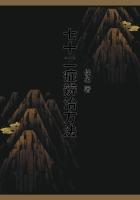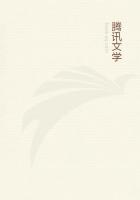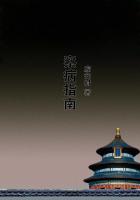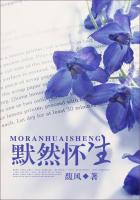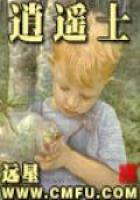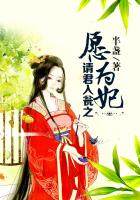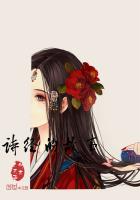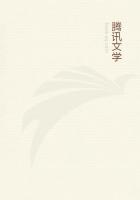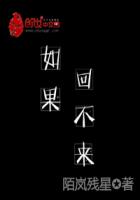Florence, as yet, had only to endure degradation and extortion, to submit to the mandates of foreign powers, to buy over and over again, at an enormous price, what was already justly her own, to return thanks for being wronged, and to ask pardon for being in the right. She was at length deprived of the blessings, even of this infamous and servile repose. Her military and political institutions were swept away together. The Medici returned, in the train of foreign invaders, from their long exile. The policy of Machiavelli was abandoned; and his public services were requited with poverty, imprisonment, and torture.
The fallen statesman still clung to his project with unabated ardor.
With the view of vindicating it from some popular objections, and of refuting some prevailing errors on the subject of military science, he wrote his "Seven Books on the Art of War." This excellent work is in the form of a dialogue.
The opinions of the writer are put into the mouth of Fabrizio Colonna, a powerful nobleman of the ecclesiastical State, and an officer of distinguished merit in the service of the King of Spain. Colonna visits Florence on his way from Lombardy to his own domains. He is invited to meet some friends at the house of Cosimo Rucellai, an amiable and accomplished young man, whose early death Machiavelli feelingly deplores. After partaking of an elegant entertainment, they retire from the heat into the most shady recesses of the garden. Fabrizio is struck by the sight of some uncommon plants. Cosimo says, that, though rare in modern days, they are frequently mentioned by the classical authors, and that his grandfather, like many other Italians, amused himself with practising the ancient methods of gardening. Fabrizio expresses his regret that those who, in later times, affected the manners of the old Romans, should select for imitation the most trifling pursuits. This leads to a conversation on the decline of military discipline, and on the best means of restoring it. The institution of the Florentine militia is ably defended, and several improvements are suggested in the details.
The Swiss and the Spaniards were, at that time, regarded as the best soldiers in Europe. The Swiss battalion consisted of pikemen, and bore a close resemblance to the Greek phalanx. The Spaniards, like the soldiers of Rome, were armed with the sword and the shield. The victories of Flaminius and Aemilius over the Macedonian kings seem to prove the superiority of the weapons used by the legions. The same experiment had been recently tried with the same result at the battle of Ravenna, one of those tremendous days into which human folly and wickedness compress the whole devastation of a famine or a plague. In that memorable conflict, the infantry of Aragon, the old companions of Gonsalvo, deserted by all their allies, hewed a passage through the thickest of the imperial pikes, and effected an unbroken retreat, in the face of the gendarmerie of De Foix, and the renowned artillery of Este.
Fabrizio, or rather Machiavelli, proposes to combine the two systems, to arm the foremost lines with the pike for the purpose of repulsing cavalry, and those in the rear with the sword, as being a weapon better adapted for every other purpose. Throughout the work, the author expresses the highest admiration of the military science of the ancient Romans, and the greatest contempt for the maxims which had been in vogue amongst the Italian commanders of the preceding generation. He prefers infantry to cavalry, and fortified camps to fortified towns. He is inclined to substitute rapid movements and decisive engagements for the languid and dilatory operations of his countrymen.
He attaches very little importance to the invention of gunpowder. Indeed, he seems to think that it ought scarcely to produce any change in the mode of arming or of disposing troops. The general testimony of historians, it must be allowed, seems to prove that the ill-constructed and ill-served artillery of those times, though useful in a siege, was of little value on the field of battle.
On the tactics of Machiavelli we will not venture to give an opinion, but we are certain that his book is most able and interesting. As a commentary on the history of his times, it is invaluable. The ingenuity, the grace, and the perspicuity of the style, and the eloquence and animation of particular passages, must give pleasure, even to readers who take no interest in the subject.
"The Prince" and the "Discourses on Livy" were written after the fall of the republican government. The former was dedicated to the young Lorenzo de' Medici. This circumstance seems to have disgusted the contemporaries of the writer far more that the doctrines which have rendered the name of the work odious in latter times. It was considered as an indication of political apostasy.
The fact, however, seems to have been, that Machiavelli, despairing of the liberty of Florence, was inclined to support any government which might preserve her independence. The interval which separated a democracy and a despotism Soderini and Lorenzo, seemed to vanish when compared with the difference between the former and the present state of Italy, between the security, the opulence, and the repose which she had enjoyed under its native rulers, and the misery in which she had been plunged since the fatal year in which the first foreign tyrant had descended from the Alps. The noble and pathetic exhortation with which "The Prince" concludes shows how strongly the writer felt upon this subject.

